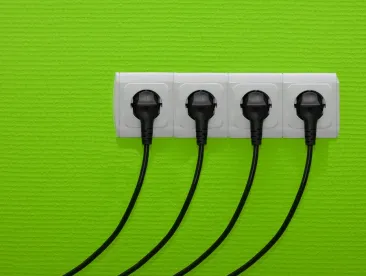President Andres Manuel López Obrador has sent to the House of Representatives a preferential bill to reform the Electricity Industry Law, which Congress will be required to discuss in the next 60 days.
Main Topics of the Bill Include:
Modification of the Dispatch Rules
The bill will change the dispatch rules under which electricity will be fed to the power system in the following order:
-
"First - The hydroelectric power plants owned by the Mexican Federal Electricity Commission (CFE or Comisión Federal de Electricidad);
-
Second - The nuclear, geothermal, combined cycle and thermoelectric power plants owned by CFE;
-
Third - The solar and wind power stations owned by private entities; and
-
Fourth - The combined cycle power stations owned by private entities."
Note that the self-supply and cogeneration schemes are not referred to in these new dispatch rules. However, we understand that such power stations will be dispatched in the third place, if they are considered renewable or efficient cogeneration; if not, they will be dispatched in the fourth place.
Note also that the bill introduces a new type of contract that a CFE Basic Service Supplier will be able to sign with CFE Power Generation. This new contract will not require a CFE Basic Service Supplier to undertake power auctions to get electricity and capacity from private generators. Therefore, all new power stations that CFE builds will execute these new Power Purchase Agreements with Commitment to Physical Deliveries (PPA) with the CFE Basic Service Supplier without the need to conduct a power auction and, pursuant to the new dispatch rules, would be preferred in advance to the power stations owned by the private sector.
If approved, the bill´s modifications may essentially cause that: (i) no more power auctions will be conducted by the Mexican government to secure capacity and electricity from the private sector; therefore, (ii) no new renewable power projects will be developed within the following years; (iii) Mexico will fail in its commitments under the Paris Accords and other international free trade agreements entered into by Mexico with other economic regions or countries, including without limitation, the USMCA; (iv) existing power projects will face curtailment issues that could jeopardize their financial feasibility; and (v) power generation and power trading services will not be provided under free market conditions, since the Independent System Operator (ISO) would give priority to CFE’s generation.
New Power Generation Permits and Interconnection
According to the bill, the granting of new power generation permits shall be subject to the planning criteria of the National Electric System issued by the Ministry of Energy. Access to the power grid will not be subject to open access rules, but instead will be granted if technically feasible [a concept to be defined by the National Center for Energy Control (CENACE), the ISO and the CFE as the operator of the National Transmission System].
New CFE power generation projects will have interconnection priority to the power grid.
Clean Energy Certificates
The bill provides that Clean Energy Certificates (CELs) can be granted to clean power generation facilities, regardless of their ownership and the time the power station started operations. This means that all of CFE’s clean energy power stations will receive CELs.
With this change, the market will be flooded with CELs, causing a reduction in their price and discouraging the development of new clean energy projects.
Revocation of Power Generation Permits by the Energy Regulatory Commission (the CRE)
With this modification, the CRE will be entitled to revoke power generation permits (i.e., under self-supply and cogeneration schemes) that were obtained by power generators that created private and separated power markets, as the bill holds, against the law.
The López Obrador administration considers that the self-supply and cogeneration schemes introduced in the Mexican Energy Reform of 1992 should exclusively be limited to the companies that wanted to satisfy their power demand; the purpose of such reform was misunderstood by allowing power generators to sell power to their different “shareholders.” All of these permits can now be revoked by the CRE.
Renegotiation of PPAs Executed Under the Independent Power Producer (IPP) Scheme
With this reform, the executive branch will review the “profitability” of all power purchase agreements executed with IPPs.
Preliminary Concerns and Conclusions
If the bill is approved by Congress - which we believe will occur, since the president’s political party, MORENA, has the majority required to pass it - Mexico will send an unfortunate message to the private sector in the electricity industry. Local and foreign investors have invested millions of dollars in developing energy projects under the Mexican Energy Reform and this bill will change the rules by which such investments were made. As a result, it will be very likely to see claims brought under the different bilateral or multilateral investment treaties executed by Mexico (i.e., USMCA, the EU-Mexico Global Agreement, the CPTPP, and others).
Many of these topics had been introduced by the Mexican government in the New Policy of Reliability of the National Electrical System (the Reliability Policy). The Reliability Policy was subject to constitutionality challenges mainly filed by the Mexican Antitrust Authority ("Cofece") and the private sector through different constitutional (Amparo) procedures in the federal district courts. As a result of these procedures, the Mexican Supreme Court of Justice considered the Reliability Policy unconstitutional, suspending the effects of the policy, and different federal courts have begun granting decisions against the policy, ruling among others, that it violates the free competition and provides an undue advantage to the CFE.
The proposed amendments may go against the antitrust provisions and principles foreseen in the Mexican Political Constitution and may result in increasing electricity tariffs for the commercial, industrial and domestic sectors.
In addition, giving priority for the dispatch of CFE’s power generation plants, based on fossil fuels and curtailing power generation from renewable sources, will jeopardize Mexico’s meeting its Nationally Determined Contribution (NDC) targets for 2030 under the Paris Accord, the Climate Change Law and the Energy Transition Law. With this policy, Mexico will be the first G20 country to breach the Paris Accord.
Legal Actions Against the Bill Once It is Enacted
Considering that the bill modifies the dispatch rules under which the power generation projects were developed and financed, and whose provisions may be against antitrust and other provisions regulated under Mexico’s Political Constitution, interested industry participants may challenge the bill once enacted in the Mexican courts through a constitutional (Amparo) procedure, and seek an injunction as the federal courts may suspend implementation of the bill.
International investors may also consider international arbitration under the bilateral or multilateral investment treaties Mexico has executed, including without limitation, under the USMCA.







 />i
/>i
